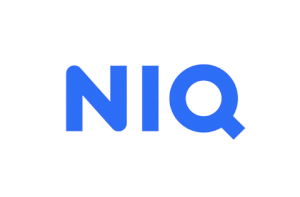
NIQ Report Reveals 2025 Global Health & Wellness Trends
Wearable tech and conscious buying are influencing health and wellness spending habits
Consumers worldwide are more skeptical of health claims by food companies (62%) and want more transparency in product labels (82%)
Globally, 43% of consumers would consider taking anti-obesity medication if recommended by their healthcare provider
Globally, 39% of consumers view ultra-processed foods negatively, North Americans (48%) among the highest of any region
NIQ Health & Wellness Report 2025
“To thrive in the evolving wellness market, brands must go beyond product innovation to deliver clarity, transparency, affordability, and trust,” said Marta Cyhan-Bowles, Chief Communications Officer & Head of Global Marketing COE. “Consumers are ready to invest in their well-being but need guidance. Companies must ensure their products are accessible, transparently labeled, and competitively priced to win consumer loyalty.”
Top Consumer Trends in Health and Wellness in 2025
To capture shifting consumer preferences and what it means to live well, manufacturers and retailers must connect with today’s holistically minded and better-informed consumers in ways that focus on their priorities.
Nutrition and gut health are driving healthy food and beverage choices:
Half (53%) of the consumers across 19 surveyed countries say they plan to buy more high-fiber foods in 2025, while around 40% plan to buy more superfoods, high-protein plant-based foods, or probiotic foods.
Anti-obesity medications (AOMs) are transforming weight loss management:
More than half (54%) of consumers place more importance on healthy body weight, shape, and muscle tone now than they did five years ago. Four in 10 (43%) would consider taking AOMs if recommended by their healthcare provider, but 63% globally are not familiar with the medications.
Health-related technology is a growth area in the global Consumer Tech & Durables market:
Three-quarters (74%) of consumers would prefer a tech product with extra health and wellness features over one without. Nearly two-thirds (63%) believe that health-focused technology products are effective in helping to improve their health and wellness, and 57% say they would use an app or screening device that ensures the products they purchase align with their personal health priorities.
Consumers are focusing on self-care and wellness:
Nearly two-thirds (63%) of consumers prioritize getting quality sleep and looking after their mental health more than they did five years ago. They also plan to do more activities like spending time in nature (60%), massage and muscle relaxation (40%), yoga and meditation (35%), or aromatherapy (24%).
Conscious buying—the global demand for socially responsible products is on the rise:
Personal well-being and societal responsibility are becoming increasingly interlinked in consumers’ outlooks. In fact, 70% of surveyed consumers say they believe it’s “important” or “very important” that the health and wellness products they buy are also eco-friendly and/or ethically produced (e.g., fair trade, cruelty-free, higher animal welfare), and 71% are willing to pay more for wellness products with these attributes.
Key Takeaways for Brands
Manufacturers and retailers must address consumers’ ongoing core concerns around the cost and availability of healthier options—and their desire for authentic, clear, and detailed product information. Brands can additionally win loyalty with core segments, along with premiumization potential, by ensuring that their full product portfolio has a wellness focus, as well as being ethically sourced, environmentally responsible, and socially aware.
About the Global State of Health & Wellness 2025 Report
This flagship report focuses on global forces that are shaping consumers’ developing needs and findings around consumers’ health and wellness awareness, aspirations, motivations, barriers, and future buying intentions. To understand how these trends are impacting your local market, download a free copy of the global report and one or more of the five Regional Insights Companions that dig deeper into specific markets across Asia Pacific; Europe, Middle East & Africa; Latin America; North America; and Western Europe.
Research Methodology
NIQ’s 2025 Global Health & Wellness survey was conducted in January and February 2025. Nearly 19,000 adult consumers were interviewed online in the following 19 countries: Brazil, Canada, China, Czechia, France, Germany, Hungary, India, Indonesia, Italy, Mexico, Netherlands, Poland, South Africa, Spain, Turkey, United Arab Emirates, United Kingdom, and United States. Data reflects the adult grocery shopping population in each respective country.
About NIQ
NielsenIQ (NIQ) is a leading consumer intelligence company, delivering the most complete understanding of consumer buying behavior and revealing new pathways to growth. NIQ combined with GfK in 2023, bringing together two industry leaders with unparalleled global reach. Our global reach spans over 90 countries covering approximately 85% of the world’s population and more than $ 7.2 trillion in global consumer spend. With a holistic retail read and the most comprehensive consumer insights—delivered with advanced analytics through state-of-the-art platforms—NIQ delivers the Full View™.
For more information, please visit www.niq.com
© 2025 Nielsen Consumer LLC. All Rights Reserved.
View source version on businesswire.com: https://www.businesswire.com/news/home/20250527155254/en/
Contact
NielsenIQ (NIQ)
Patricia Ratulangi
patricia.ratulangi@nielseniq.com
This news is a press release provided by NielsenIQ (NIQ).

